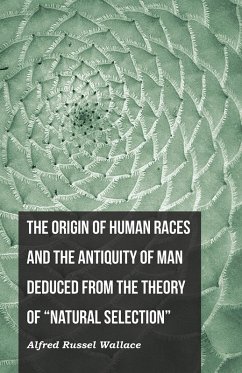
The Coming of Evolution (eBook, ePUB)
The Story of a Great Revolution in Science

PAYBACK Punkte
0 °P sammeln!
In "The Coming of Evolution," John W. Judd explores the transformative notions of evolutionary theory that emerged during the late 19th century, a period marked by an unprecedented interest in both science and philosophy. Blending rigorous scientific analysis with accessible prose, Judd effectively elucidates the complexities of natural selection, geological processes, and the gradual adaptation of species. His narrative is rooted in a rich literate context that spans the Enlightenment to Darwinian thought, establishing a bridge between descriptive natural history and the emerging scientific m...
In "The Coming of Evolution," John W. Judd explores the transformative notions of evolutionary theory that emerged during the late 19th century, a period marked by an unprecedented interest in both science and philosophy. Blending rigorous scientific analysis with accessible prose, Judd effectively elucidates the complexities of natural selection, geological processes, and the gradual adaptation of species. His narrative is rooted in a rich literate context that spans the Enlightenment to Darwinian thought, establishing a bridge between descriptive natural history and the emerging scientific methodologies of his time. John W. Judd, a geologist whose work aligns with the intellectual fervor of his era, was deeply influenced by the scientific advancements and philosophical debates surrounding evolution. His expertise in geology not only lends credibility to his assertions but also reflects his belief in the interconnectivity of the Earth's physical history with biological development. This profound understanding of both geology and biology shaped his perspective, prompting him to write this book, which engages with the pivotal shifts in scientific thought. "The Coming of Evolution" is an essential reading for anyone intrigued by the origins of evolutionary theory and its implications. Judd's synthesis of scientific inquiry and philosophical discourse offers readers an enlightening perspective on how evolutionary thought emerged and evolved. This work serves as both a historical account and a critical analysis that resonates with contemporary discussions in biology and the philosophy of science.
Dieser Download kann aus rechtlichen Gründen nur mit Rechnungsadresse in A, B, BG, CY, CZ, D, DK, EW, E, FIN, F, GR, H, IRL, I, LT, L, LR, M, NL, PL, P, R, S, SLO, SK ausgeliefert werden.













